Why Amazon Keeps Hiring MBAs
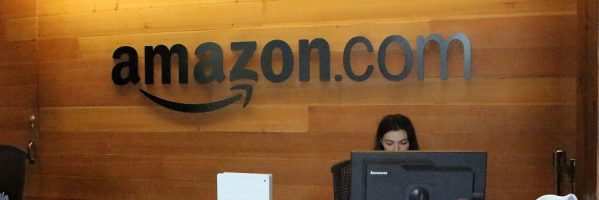
Editors Note: This article on Amazon hiring MBA students is an updated version of the original.
When thinking about the largest tech sector companies in the world, Apple, Microsoft, Facebook, Google, and Amazon are sure to top the list. Not only are these companies on the forefront of technological advancement in business and consumer electronics, they are also major players in the MBA job market.
Of all these notable heavyweights, Amazon is the biggest employer of graduates from elite business schools. According to the U.S. News & World Report’s top 20 rankings (from schools that release company-level hiring statistics), the e-commerce powerhouse hired more than twice as many top MBAs in 2016 as Microsoft, the next biggest tech employer. And with the upcoming development of HQ2, the company’s second headquarters, demand for MBA-level talent is sure to increase at the ever-expanding ecommerce giant.
Amazon—a company that offers online retail, cloud computing, mobile devices and media streaming services—has plenty of workforce needs. According to its annual report, Amazon has 230,800 full- and part-time employees. According to QZ, the company currently lists almost 17,000 open jobs among its corporate positions.
Why Is Amazon Hiring MBA Students?
Across all industries, Amazon is the fifth-largest employer of graduating MBAs, according to data on more than 200 full-time MBA programs collected by Bloomberg Businessweek. Amazon is also No. 4 on the 2013 Universum list of most popular MBA employers, up from No. 8 in 2011 and No. 6 in 2012.
Why the focus on hiring top MBA talent? Miriam Park, director of university programs at Amazon, told the Financial Times:

Miriam Park
“The Amazon recruitment process is designed to ensure we hire top candidates with high-growth potential whatever their background may be. As part of this we recruit current MBA students and MBA alumni for permanent and internship opportunities worldwide and see MBAs as an important part of our leadership development. We value people who can balance long-term strategic thinking with tactical execution, and who have the ability to make data-driven decisions.”
She added:
“We value MBAs for, in many cases, the global approach that they can bring to the business with many candidates having worked and studied in more than one country. Their range of experience and variety of backgrounds is invaluable in bringing a different way of looking at our business. We also value the analytical skills that they develop through their MBA. In fact, many of our senior leaders started at Amazon after completing MBAs.”
Which Potential Paths Leads to Employment at Amazon?
The best way that an MBA can get in with Amazon and end up with a job is to apply for an internship. Amazon also offers an MBA program that intends to create a pipeline from top business schools to actual jobs within the organization. Amazon offers several full-time opportunities to MBA interns. Each role lasts 11 to 12 weeks and provides students the opportunity to complete function-specific projects.
The company also offers a robust 8 to 12-week summer MBA internship that gives participants the opportunity to hone their decision-making ability in real-life consumer, finance, HR, technology businesses and operations environments. According to CNNMoney, Amazon’s summer internships host more than 170 interns from more than two dozen business schools each year.
What Kind of Jobs Can I Get at Amazon with an MBA?
As CNNMoney outlines, MBAs at Amazon may end up in any number of roles, whether it’s launching new products, finding ways to optimize the customer experience or evaluating the company’s future business investments.
Park discussed specific jobs that are offered to MBAs with the Financial Times. In terms of potential career options for MBAs at Amazon, she outlined participation in the Consumer Leadership Development (CLD) program, Pathways program for operations managers and Senior Financial Analyst (SFA) development program, as well as the role of senior product manager.
CLD is a three-year leadership development program in which MBAs rotate through two different roles from a choice of areas such as vendor management, in-stock management, marketing management, merchant management and/or retail product management. The goal of the program is to provide MBAs with a path to leadership roles at Amazon. Participants develop an understanding of the key roles within retail and become effective managers.
Pathways is a three-year, field-based program based out of warehousing and shipping centers for merchant goods and customer service sites. This is a position in which MBAs will have to develop leadership ability to complete fulfillment center and customer service operations.
SFA is a three-year leadership development program in which senior financial analysts are expected to evaluate and quantify new business ideas and perform data-intensive analyses to improve the way Amazon serves its customers.
Senior product managers work with technology teams to drive ideas from conception to execution, develop business models and marketing plans, define and analyze success metrics, manage strategic projects and own the product end to end. This job offers an inside track to future roles as general managers responsible for running large business segments.
Barack Obama to Speak at 12th Annual MIT Sloan Sports Analytics Conference

It was announced earlier this week that former U.S. President Barack Obama will be among the honorary speakers at this year’s MIT Sloan Sports Analytics Conference.
The 12th annual event arrives at the Boston Convention and Exhibition Center February 23 and 24. Alongside Obama, the highly publicized conference will feature some of the biggest names in the sports industry, including: former Microsoft CEO and Los Angeles Clippers owner Steve Ballmer, Major League Baseball commissioner Rob Manfred, National Hockey League commissioner Gary Bettman, National Basketball League commissioner Adam Silver, former professional athletes like Steve Nash and Alex Rodriguez, and Seattle Storm point guard and U.S. Olympian Sue Bird, among others.
Co-founded by MIT Sloan School of Management MBA graduate Daryl Morey, the current general manager of the Houston Rockets, and Kraft Analytics Group CEO Jessica Gelman in 2006, the annual conference has transformed into one of the most formative sports business events in the world. Since its inception, the event has spawned and popularized numerous movements in the industry, including basketball’s strategic revolution (they call it MoreyBall for a reason).
During his tenure in the White House, Obama’s sports fandom became a much-publicized part of his public persona, appearing on ESPN throughout his two terms to discuss the NCAA tournament, college football playoffs, and more.
.@BarackObama, the 44th President of the United States, will speak at @SloanSportsConf February 23. We are pleased to welcome President Barack Obama, a well-known sports fan. Visit https://t.co/2E9wO8Qo5K for more details #SSAC18 #analyzethis
— Sloan Sports Conf. (@SloanSportsConf) January 6, 2018
Obama will be speaking on the first day of the conference, Friday, February 23. Alongside the notable speakers, the conference features career help seminars, a case competition, an in-depth multi-day look into esports, a hackathon, and much more.
The MIT Sloan Analytics Conference website reads:
“At our roots, we are about education and our goal is to provide more opportunities for sharing industry successes, to create forums to discuss the most challenging topics of the day, and to continue identifying new ideas. As a conference we are firmly committed to innovation. Each year, we have added new elements to push the larger analytics conversation forward. Recent years have seen advances from the Research Paper competition started in 2010 to the popular and successful Hack-A-Thon, the introduction of an esports room, doubling the number of Competitive Advantage talks, expansion of the Startup Tradeshow competition, and introduction of industry-specific workshops. Despite our past successes, we firmly believe that the best is yet to come.”
Find out more information about the event and register today.
A New Year, A New Dean: NYU Stern Taps Insider to Fill Top Role

There will be a new dean at the helm when the NYU Stern School of Business rings in 2018, but he’s certainly not a newcomer to the school. NYU President Andrew Hamilton and Provost Katherine Fleming today announced that Rangarajan “Raghu” Sundaram, who joined Stern’s faculty more than two decades ago, has been appointed as dean, effective January 1, 2018.
Sundaram, a professor of credit and debt markets as well finance, was selected by Dean Peter Henry in 2016 to join Stern’s leadership team as vice dean for MBA programs. In that role, he has overseen the school’s full-time MBA program; the Langone part-time MBA program; multiple dual-degree programs; and the Executive MBA program, among others. He also helped establish the Creative Destruction Lab, launch the school’s new, specialized one-year MBA programs, and bring business leaders from companies including Amazon, Jigsaw, Microsoft, IBM, and PayPal to join Stern’s newly created Tech MBA Advisory Board.
Sundaram was among several strong candidates for the dean’s post, the school reports. “But in the end, the Search Committee found the best candidate here in our own midst,” President Hamilton said in a statement. “And rightly so. Raghu Sundaram has a strong, highly-regarded record of leadership and innovation, scholarship and teaching, and collegiality and service to both Stern and the university. In a field of distinguished candidates for Stern’s deanship, Raghu stood out.”
As vice dean, Sundaram is also credited with helping extend the school’s New York City–based EMBA program to downtown Washington DC, and shepherding Stern’s entry into online education through the launch of a series of online certificate programs.
As a researcher, Sundaram’s work has focused on agency problems, executive compensation, corporate finance, derivatives pricing, credit risk, and credit derivatives, areas in which he has published extensively. He also has won several awards, including the Jensen Prize and the Stern School’s inaugural Distinguished Teaching Award, and was a finalist for the Brattle Prize and a recipient of research grants from the National Science Foundation and other organizations.
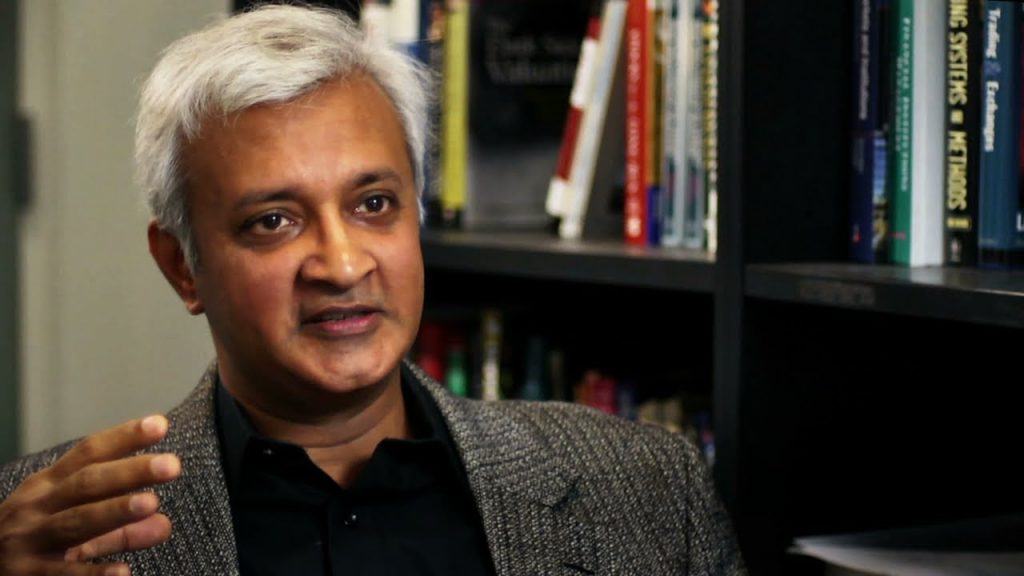
Incoming NYU Stern Dean Rangarajan “Raghu” Sundaram.
The Indian-born Sundaram holds an MBA from Indian Institute of Management, Ahemedabad, as well as both an MA and PhD in economics from Cornell. He taught on the faculty of the University of Rochester for eight years before joining Stern’s faculty in 1996.
Sundaram will replace outgoing Dean Peter Henry, who announced in February of this year his plans to step down and return to full-time scholarship. “At a time when advanced-nation rhetoric and a seeming unwillingness to commit to the reforms needed for growth are at odds with global population trends and an increased need for investment in the developing world, I believe now is the time for me to make further contributions as an economist, advisor and Stern professor,” Henry stated at the time explaining his decision.
Learn more about newly appointed NYU Stern Dean Rangarajan Sundaram.
This article has been edited and republished with permissions from our sister site, Clear Admit.
Tech Grads Surge in New Northwestern Kellogg Employment Report

The Kellogg School of Management released new employment data and statistics from the Class of 2017. According to the school, 94 percent of Kellogg’s full-time MBA Class of 2017 received an offer within three months of graduation.
“Kellogg leaders take a multidisciplinary approach to solving complex business challenges,” said Matt Merrick, Associate Dean of MBA Operations. “The versatile skills they hone at Kellogg enable them to make an immediate impact across all types of organizations.”
MBAs were hired by a wide variety of companies across all disciplines and industries, shapes and sizes. Some of the top companies hiring Kellogg students include McKinsey & Company, The Boston Consulting Group, Amazon, Bain & Company, and Microsoft.
Employment data shows that the most popular industries were consulting (33 percent), technology (25 percent), finance (13 percent) and CPG (12 percent). The Kellogg Career Management Center helped students establish relationships with more than 50 technology companies in order to help secure these employment opportunities. Overall, the Career Management Center works with employers to create custom recruiting strategies, forging deep relationships with employers of all sizes, from all industries and regions.
According to our sister site Clear Admit, the 25 percent of Kellogg grads that landed jobs in the technology industry was a school record.
Jeanette Brown writes:
“Amazon hired 32 Kellogg grads, making it the third largest recruiter in 2017, behind only McKinsey and Boston Consulting Group (BCG). But Amazon was far from the only tech firm to hire at the school. ‘It’s not only the big employers like Amazon, Apple, Google—but the small companies as well, the ones that hire just one to two MBAs,’ explains Liza Kirkpatrick, Senior Director of the full-time MBA program at Kellogg’s Career Management Center. ‘We had over 50 unique tech employers that hired our students this past year, which demonstrates that we really have that depth.’ Kirkpatrick further noted that the types of jobs for which tech firms are hiring Kellogg grads is widely varied, including product management, sales, marketing, business operations, supply chain, product development, and others.”
Kirkpatrick notes that the surge in tech jobs stems from a concerted effort from the business school, which was also reflected in the number of technology industry internships for the Class of 2018.
“‘We started developing relationships in the tech space many years ago,’ acknowledges Kirkpatrick. ‘It has taken a while for firms to recognize that when an MBA comes on board, it really adds value.’ But they certainly have, which can also be seen reflected in the number of tech firms that now take on summer interns. ‘They have really organized themselves to bring on an MBA class as interns as a result,’ Kirkpatrick adds. The most recent employment report reveals that 26 percent of the Class of 2018 interned at technology firms.”
In a press release from the school, Jodi Washington, a Program Manager for the Networking and Security Transformation team, said, “Kellogg’s curriculum builds leaders who are strong analytical thinkers and are confident collaborating across organizations. The Kellogg graduates we hire jump in on day one, but also continue to mature at Cisco.”

2017 statistics/photo courtesy of Northwestern Kellogg.
The statistics show that the number of Kellogg MBAs to accept job offers on the West Coast has also increased (31.4 percent) from last year, a direct correlation to uptick in tech hires. Meanwhile, 30 percent of 2017 MBAs stayed in the Midwest and 33 percent accepted jobs on the East Coast.
You can read more on Kellogg’s latest employment stats and the Clear Admit interview with Kellogg Senior Director of Career Management Liza Kirkpatrick here.
Looking At New York City’s Best MBA Return on Investment, Pt. II

New York City is an obvious choice for budding entrepreneurs, consultants, and financiers to find their footing.
Manhattan is regularly called a playground for the wealthy, with a 2016 Newsweek article playfully and indiscriminately dubbing rich people New York’s new urban blight. So, if you’re one of the millions of people hopping into New York to extract its cultural and financial resources for personal gain before migrating to some more humane province, why not do an MBA there while you’re at it?
The proximity of New York business schools to the city’s wealth of opportunities means that MBAs have a kind of access that make b-schoolers elsewhere in the country—and the world—salivate. New York’s matchless combination of industry, culture, and strategic location means that any one of the numerous business schools that populate the region will give MBAs a veritable nitrous boost when it comes to post-graduation job placement. In fact, earlier this month we covered five other NYC MBA programs that give graduates the best return-on-investment.
You’ve surveyed the best so let’s try the rest! While Part 1 was populated by the most elite and therefore more expensive MBA options in the region, Part 2 focuses on New York programs that are more practical choices if you’re doing business school on a budget. These programs tend to offer comparatively smaller returns-on-investment but the advantage is their affordability.
So, let’s take a deeper dive into four more New York-area MBA programs that offer the best returns-on-investment for graduates.
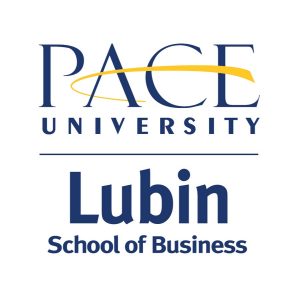
Lubin School of Business — Pace University
The Lubin School of Business counts Hearst Magazines president Michael Clinton ’83, HBO Chairman and CEO William C. Nelson ’75, and former Chairman and CEO Ivan G. Seidenberg ’81 among its notable alumni. With tuition for Lubin’s two-year full-time MBA priced at $71,340, the program qualifies one of the mid-range options on our list. MBAs graduate with an average salary-to-debt ratio of 68 percent culled from average debt of $44,076, according to U.S. News & World Report, and an average base salary of $64,425.
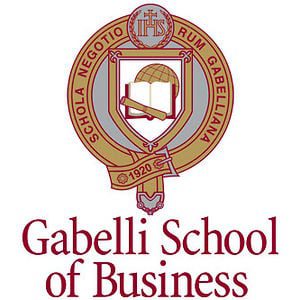
Gabelli School of Business — Fordham University
Notable Gabelli School of Business notable alumni include UnitedHealth Group CEO Stephen J. Hemsley, ’74; former JP Morgan CEO Maria Elena Lagomasino ’77; Countrywide Financial Corp Co-Funder, Chairman, and CEO Angelo R. Mozilo ’60; and Empresas Polar CEO Lorenzo Mendoza. At $87,807 for its two-year full-time MBA, Gabelli’s tuition is among the priciest on our list but the handsome 53 percent salary-to-debt ratio makes up for it. MBAs graduate with an average debt of $51,870 and go on to earn an average base salary of $97,404.

Tobin School of Business — St. John’s University
The Tobin School of Business at St. John’s University is one of the most affordable MBA programs on our list, with tuition priced at $43,740 for its two-year full-time MBA. Tobin MBAs graduate with an average debt of $28,291, which when set against their $59,276 average base salary, yielding a 48 percent salary-to-debt ratio.
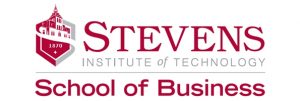
Stevens Institute of Technology School of Business
Recent noteworthy employers of the Stevens Institute of Technology School of Business MBAs include ExxonMobil, Goldman Sachs, Johnson & Johnson, JPMorgan Chase, L’Oreal, Lockheed Martin, Microsoft, Tishman Realty & Construction Co., Turner Construction, UBS Financial, and Verizon. Although tuition is priced at a competitive $68,988 for its two-year full-time MBA, Stevens actually has the highest salary-to-debt ratio of any school on our list, at 72%. Stevens MBAs graduate with an average debt of $48,244, according to CNN Money, and go on to earn an average base salary of $67,100.
Finding The Right Online MBA For You

With so many amazing online MBA programs available throughout the country—and without location making the decision for you—it can seem nearly impossible to choose which Online MBA degree program is right for you.
With the increasingly available option to customize your degree in a particular area of emphasis—just as most full-time MBA programs offer—students can gain a competitive edge in their field without ever having to leave their house. In addition, the kind of specialization offerings at each program may help students narrow down the perfect Online MBA for them. Whether your looking to gain industry expertise in accounting or entrepreneurship and anything in between, understanding the areas of emphasis and structure of each degree can be a big help when confronted with such a vast number of impressive programs to choose from.
We take a look at most in demand concentrations available at each of the schools in MetroMBA’s new Online metro, finding what sets each program apart and may make it the perfect degree for you.
Fox School of Business – Temple University
At Temple University’s Fox School of Business, accounting is seen as much more than just calculating numbers—at Fox, it’s “the language of business.” It’s also the most popular area of concentration for students pursuing their MBA online.
The Department of Accounting at Fox focuses on an intense study of the field of accounting, providing students with several opportunities to gain “real-world” experience in the discipline. This sort of experience provides a competitive edge no matter what career path accounting students choose to pursue, which both include and go beyond public accounting.
In addition to students who choose to concentrate in accounting, the Online MBA at Fox is already strongly rooted in the accounting discipline, with all students being responsible for taking an accounting course as a key part of the degree and its curriculum.
Hough Graduate School of Business – University of Florida
If you are looking for a flexible degree that can expand your entrepreneurship knowledge, the Hough Graduate School of Business’ Online MBA may be the perfect degree for you. One of the four options in which students can focus their degree, Entrepreneurship skills are a core part of the Hough School’s curriculum.
Students looking for a more immersive or even global entrepreneurship experience can also take the courses for their concentration within just one week on campus in Gainesville, or taken during a one week international study trip. Of course, students who don’t have the ability to take a week off for this purpose may choose to pursue their Entrepreneurship electives online, as with the rest of the core courses of the degree.
Kelley School of Business – Indiana University
Students looking to focus their MBA in finance will find themselves in good company at Indiana University’s Kelley School of Business. Studying the discipline with the same highly ranked faculty who teach in the full-time MBA program, online students have the chance to round out their degree with electives that particularly focus on the financial applications of their MBA degree.
One reason the study of finance is so popular for online MBA students at Indiana University may be the opportunity to pursue a dual degree, combining their MBA with an online MA in subjects like Finance, Strategic Management, and Business Analytics, among other options. Such an interdisciplinary degree with a strong finance background will give Kelley graduates a competitive edge as they enter the workforce.
FOR YOU: Finding the Best Laptop for Business School
Kenan-Flagler Business School – University of North Carolina
The Online MBA@UNC provides students with a world-class MBA curriculum that allows students to specialize their degree within one of eight special areas. In high demand at UNC is the Management Consulting degree, which prepares students for positions as business consultants.
Even though online programs don’t typically scream “hands on,”the MBA@UNC is build this way, providing consulting students with ample experiential learning and guided practice to gain the necessary leadership and client management skills for success in the consulting field.
Tepper School of Business – Carnegie Mellon University
The Tepper School of Business, ranked as the second best Online MBA by the U.S. News & World Report, is a top MBA for students interested in specializing in Business Analytics.
Students at Tepper have the chance to set their MBA within a particular track, and with the decision to focus on Business Analytics students will be provided with the necessary skills to transform massive amounts of data into usable and analyses to improve the worlds of both business and technology. Graduates from the Business Analytics track at Tepper have accepted jobs from such companies as Amazon, Microsoft, IBM, McKinsey, and more.
W.P. Carey School of Business – Arizona State University
Students looking to specialize their MBA in Supply Chain Management/Logistics may find the perfect degree at Arizona State University’s W.P. Carey School of Business. With so many of the degree’s core courses centered around logistics- such as ‘Decisions, Market Structure and Games’ or ‘Operations and Supply Management’—MBA students can use their electives to even further customize their degree with courses like ‘Supply Chain Cost/Design Issue, ‘Suppler Management and Negotiations,’ among others.
